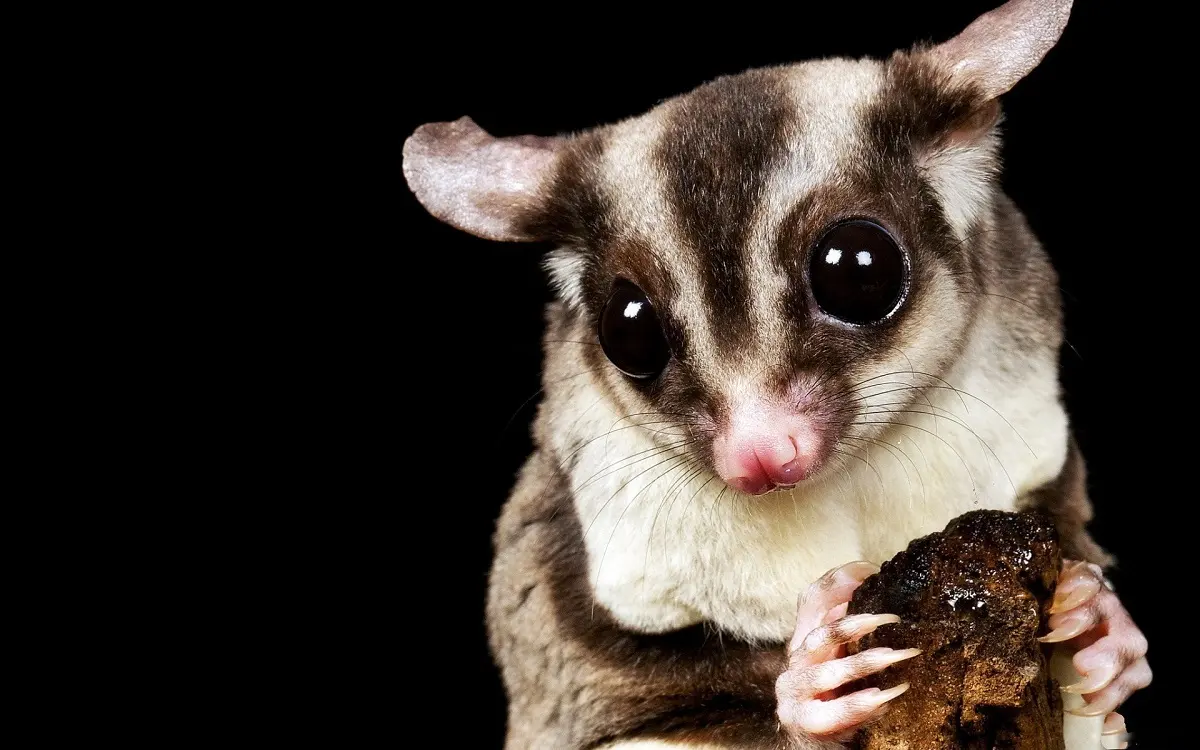Sugar gliders have become increasingly popular as exotic pets, due to their cute appearance, social nature, and unique gliding abilities. However, potential sugar glider owners often have concerns about their tendency to bite.
Understanding Sugar Gliders’ Biting Behavior
Although sugar gliders can bite, it is crucial to recognize that biting is not an inherent characteristic of these animals. Like other pets, sugar gliders may bite for various reasons, including fear, territorial behavior, exploration, and communication. To address biting issues effectively, it is essential to understand the underlying cause of the behavior.
Fear and Self-Defense
As prey animals in the wild, sugar gliders possess a strong survival instinct that makes them naturally cautious and defensive. When they feel threatened or frightened, they may bite to protect themselves. This defensive behavior is particularly prevalent among newly-acquired sugar gliders that have not yet formed a bond with their owners or adapted to their new environment.
Territorial Behavior
Male sugar gliders can exhibit territorial behavior, especially when housed with other males or in the presence of a female. They may bite to assert dominance or protect their territory from perceived threats. This behavior is more common among sugar gliders that have not been neutered.
Exploration and Curiosity
Sugar gliders are inquisitive creatures that rely on their senses, including taste, to explore and understand their surroundings. They may nibble or bite objects, including their owners’ hands, to gather information about their environment. While this behavior is not aggressive, it can still be painful if the sugar glider bites too hard.
Communication
Sugar gliders may also use biting as a form of communication to express their needs or emotions. For example, a sugar glider may bite to signal hunger, discomfort, or annoyance. Understanding your sugar glider’s body language and vocalizations can help you recognize and address the cause of their biting.
Preventing and Managing Biting Behavior
While it may be challenging to eliminate biting entirely, several strategies can help minimize the frequency and severity of biting incidents.
Socialization and Bonding
One of the most effective ways to prevent biting is to socialize your sugar glider from a young age. Regular handling and interaction will help them become more comfortable with you and less likely to bite out of fear. Bonding pouches, which allow you to carry your sugar glider close to your body, can be particularly helpful in fostering trust and forming a strong bond.
Proper Housing and Enrichment
Providing a safe, comfortable, and stimulating environment for your sugar glider can significantly reduce stress and boredom, which may contribute to biting behavior. Ensure their cage is spacious, clean, and equipped with hiding spots, climbing structures, and toys to keep them entertained. Additionally, providing opportunities for exercise and mental stimulation, such as foraging toys and puzzle feeders, can help curb biting tendencies.
Neutering and Spaying
Neutering male sugar gliders and spaying females can help reduce hormonal-driven behaviors, such as territorial aggression and biting. Consult with an experienced exotic animal veterinarian to determine the appropriate age and procedure for your sugar glider.
Positive Reinforcement and Training
Using positive reinforcement techniques, such as offering treats and praise for good behavior, can help discourage biting. If your sugar glider bites, avoid yelling or punishing them, as this can exacerbate fear and increase the likelihood of future biting incidents. Instead, gently remove your hand and give them space to calm down. Over time, your sugar glider will learn that biting does not yield positive results.
Handling Bites and Ensuring Safety
If you are bitten by a sugar glider, it is essential to remain calm and avoid reacting aggressively. Gently remove your hand or body part from their mouth and allow them to retreat to a safe space. Clean the bite area with soap and water, and apply an antiseptic ointment to prevent infection. Monitor the wound for signs of infection, such as redness, swelling, or discharge, and consult a medical professional if necessary.
To minimize the risk of bites, always approach your sugar glider calmly and gently, and avoid handling them when they are agitated or frightened. Additionally, educate family members and visitors about proper handling techniques and safety precautions.
Conclusion
While sugar gliders can bite, understanding the reasons behind their biting behavior and employing effective prevention and management strategies can help ensure a harmonious relationship between you and your pet. By providing a safe, stimulating environment, fostering trust through socialization, and using positive reinforcement techniques, you can minimize biting incidents and enjoy a happy, healthy bond with your sugar glider.
